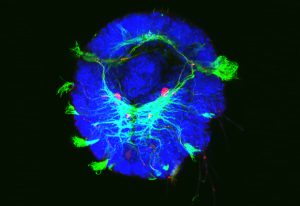
Insights into the evolution of a signalling molecule
EMBL scientists discover how a molecule’s role changes from simple metabolite to instructive signal
SCIENCE & TECHNOLOGY2018
sciencescience-technology
Showing results out of

EMBL scientists discover how a molecule’s role changes from simple metabolite to instructive signal
SCIENCE & TECHNOLOGY2018
sciencescience-technology
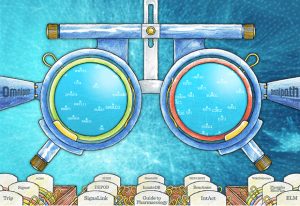
New method combines signalling pathway data resources to improve systems biology research
SCIENCE & TECHNOLOGY2016
sciencescience-technology
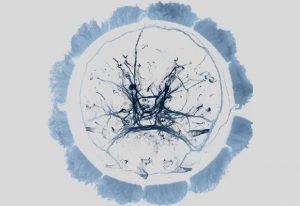
How plankton gets jet lagged: the same hormone governs our sleep patterns and a daily marine migration.
SCIENCE & TECHNOLOGY2014
sciencescience-technology
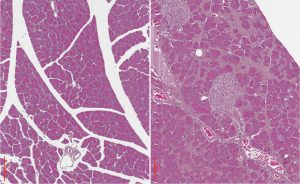
A rare form of an iron overload disorder kills pancreatic function, Heidelberg scientists find
SCIENCE & TECHNOLOGY2014
sciencescience-technology
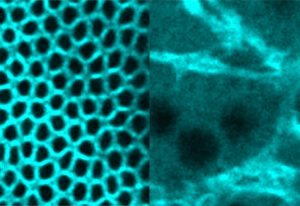
The balance behind membrane changes that turn one cell into 6000 as a fruit fly embryo develops
SCIENCE & TECHNOLOGY2014
sciencescience-technology
Researchers at the European Molecular Biology Laboratory (EMBL) have generated a digital zebrafish embryo – the first complete developmental blueprint of a vertebrate. With a newly developed microscope scientists could for the first time track all cells for the first 24 hours in the life of a…
SCIENCE & TECHNOLOGY2008
sciencescience-technology
Sudden Infant Death Syndrome (SIDS) is a condition that unexpectedly and unexplainably takes the lives of seemingly healthy babies aged between a month and a year. Now researchers of the European Molecular Biology Laboratory in Monterotondo, Italy, have developed a mouse model of the so-called crib…
SCIENCE & TECHNOLOGY2008
sciencescience-technology
New insights into the cellular signal chain through which pheromones stimulate mating in yeast have been gained by scientists at the European Molecular Biology Laboratory [EMBL]. Similar signal chains are found in humans, where they are involved in many important processes such as the…
SCIENCE & TECHNOLOGY2007
sciencescience-technology
People who suffer from anxiety tend to interpret ambiguous situations, situations that could potentially be dangerous but not necessarily so, as threatening. Researchers from the Mouse Biology Unit of the European Molecular Biology Laboratory (EMBL) in Italy have now uncovered the neural basis for…
SCIENCE & TECHNOLOGY2007
sciencescience-technology
Liver cancer is one of the deadliest cancers worldwide; every year sees more than 400,000 new cases, and most of the victims die in less than one year. Despite extensive research, the underlying molecular mechanisms of the disease are poorly understood. A new study by researchers from the Mouse…
SCIENCE & TECHNOLOGY2007
sciencescience-technology
The BioModels Database, hosted by the European Molecular Biology Laboratory’s European Bioinformatics Institute (EMBL-EBI) in Cambridge, UK, has entered a formal data-exchange agreement with the Database of Quantitative Chemical Signalling (DOQCS) of the National Centre for…
CONNECTIONSLAB MATTERS2006
connectionslab-matters
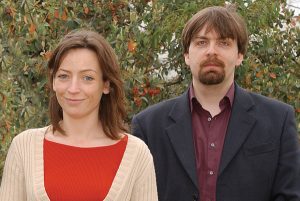
Blood cells have limited lifespans, which means that they must be continually replaced by calling up reserves and turning these into the blood cell types needed by the body. Claus Nerlov and his colleagues at the European Molecular Biology Laboratory (EMBL) unit in Monterotondo, Italy, in…
SCIENCE & TECHNOLOGY2006
sciencescience-technology
Cells in an embryo divide at an amazing rate to build a whole body, but this growth needs to be controlled. Otherwise the result may be defects in embryonic development or cancer in adults. Controlling growth requires that some cells divide while others die; their fates are determined by signals…
SCIENCE & TECHNOLOGY2006
sciencescience-technology
Today EMBL scientists, EMBL’s commercial affiliate, EMBL Enterprise Management Technology Transfer GmbH (EMBLEM) and EMBL’s venture vehicle, EMBL Ventures GmbH, announce the foundation of Elara Pharmaceuticals GmbH, a start-up company that will translate basic research findings into new…
LAB MATTERSSCIENCE & TECHNOLOGY2006
lab-mattersscience-technology
No results found